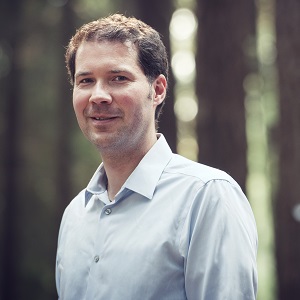Let’s Talk: New CRC Chair Frederik Noack

March 2021 – Frederik Noack talks about his research and how his interest in the field of Environmental Economics started. He was recently named a CRC (Canada Research Chair), Tier 2, in Economic and Environmental Interactions. An Assistant Professor in LFS’s Food and Resource Economics Group, Noack’s research looks broadly at the impact that economic development has on the environment, both here in Canada and in developing countries.
What problems are you hoping to solve with your research?
I’m interested in understanding how economic progress can continue without damaging the environment. My research is broad, addressing questions like: What is the impact of urbanization and rural to urban migration on land use and the environment? How does the adoption of GM crops affect the environment? But also…How does fisheries regulation affect income distributions?
Why did you focus on rural and developing nations initially?
Much of my research had a rural focus aimed at understanding the policy impacts in developing nations, mainly because these are the places where poverty and environmental degradation are concentrated and where policies can make a real impact on human lives and the environment. But now, about 30% of my research has moved to developed countries, including Canada and the U.S, mainly because I became more interested in my direct environment and because I want to work with policy makers to improve policies.
What made you interested in the field of environmental economics?
In a way, this was a high school question I had from 20 years ago: Is development necessarily bad?
My undergraduate degree was in ecology and I worked for the WWF (World Wide Fund for Nature) when I graduated from University of Greifswald (Germany). WWF focuses on protecting species at risk and natural habitats. I was lucky to travel and work in places such as Iran and Malaysia, but I saw environmental degradation that made me interested in protecting the environment in the process of economic development.
Your research is multidisciplinary. What skills do your research teams bring to their projects?
Our research teams bring a combination of two main skills: strong economic modelling skills and creativity. The first one enables data to be wrangled and analyzed through strong economic intuition and the latter is important in developing the right questions to ask and communicating the results.
For my students, I also think it’s important to help them develop one clear thought that they are able to follow through in their long-term research projects.
What has been the impact of your research to date?
My research has provided evidence to help shape perceptions. This leads to more informed decisions down the road for government, whether it be the Canadian government or the World Bank.
Also, I’ve been involved in the UBC Biodiversity Cluster Hire that will bring five new tenure-track professors to UBC focused on restoring and conserving global biodiversity. The new hires will join an interdisciplinary research and scholarship team at UBC. This is being led by the Faculty of Science, in collaboration with LFS and the faculties of arts and forestry. For LFS, our position will bring expertise in the area of Human Dimensions of Biodiversity Conservation.
What do you hope to change or influence with your research?
There are a few things that I want to achieve with my research, but mainly to see better environmental outcomes without hampering economic development. I would like to protect our natural habitats such as our old growth forests and oceans. In the end, people need an income and want a prosperous life, whether it’s in Canada or Uganda.
Frederik Noack was among the Fall 2020 CRC recipients announced by Hon. Navdeep Bains, Minister of Innovation, Science and Industry. The Government of Canada invested approximately $195 million to support new and renewed CRCs across Canada.
Tagged with: 2021, Faculty, Food and Resource Economics